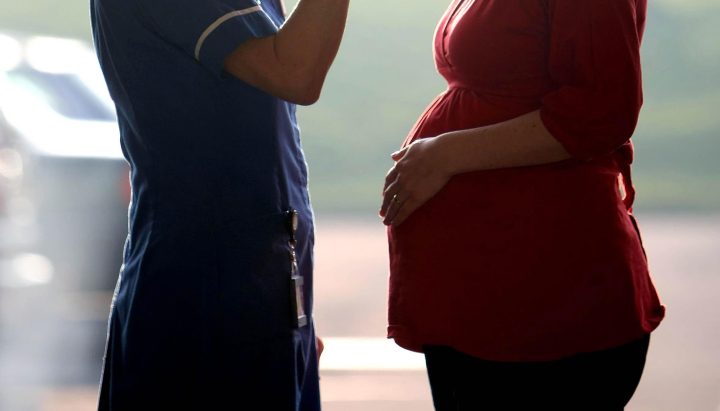Over the weekend it was reported that hospitals are implementing a ban on the gas and air used by women giving birth over concerns it could be harmful to NHS employees. A survey of 20,900 women by the NHS regulator recently found 63 per cent said they had been unable to get a member of staff’s attention during labour. Likewise, it is not believed that any workers have become ill as a result of long-term exposure to nitrous oxide, but here we are.
The whole notion of a birth ‘plan’ is now farcical. Women might want an epidural, but only 30 per cent receive them here compared with around three-quarters in the US. They might request a birthing pool, but it’s unlikely to be granted due to shortages. We are edging towards a cruel situation whereby the only medication given to labouring women is paracetamol.
I blame our national obsession with the NHS, and our muted acceptance that it exists to serve everyone but the patients
While gas and air – a mix of nitrous oxide and oxygen – is safe during delivery, lengthy exposure can cause vitamin B12 deficiency, symptoms of which can include anaemia and depression. If I had to spend my days with howling women and litres of bodily fluids, I might feel faint and wobbly, but this is the noble role midwives play. Entonox, the brand name gas and air often goes by, is not a pain killer or an anaesthetic, but it can help women regulate their breathing and feel more in control of their delivery.
Hospitals could install air purifiers or machines to take in the exhaled gas and break it up, but these are in pitifully short supply. The Princess Alexandra Hospital in Essex has secured three of them. Others simply say Entonox use has been suspended, and there is no set date to bring it back.
How did we get here? I blame our national obsession with the NHS, and our muted acceptance that it exists to serve everyone but the patients. I blame the assumption that a healthy baby excuses all that goes immediately before.
But given most nurses, virtually all midwives and a majority of new doctors are female, it is still puzzling that ‘medical misogyny’ remains a problem. Perhaps administrators and that bloated layer of NHS managers should also be held responsible. Maybe the possible health damage to medical staff rings alarm bells with bureaucrats. Add in supply issues and the fact that it has no real therapeutic benefits and you can see why computer might say ‘no’.
Of course, pain is subjective, and intensity will vary from one delivery to the next. A straightforward birth can be swift and manageable. If the baby is presenting awkwardly, however, it can be a different story. Failure to recognise this inevitable variation explains how we ended up with a one-size-fits-all attitude and a ‘natural’ birth dogma which has convinced too many midwives and mothers that medicalised deliveries are not ‘normal’.
The consequences have been catastrophic: failings at the Shrewsbury and Telford hospital trust between 2000 and 2019, for instance, led to the death and brain damage of hundreds of infants. Two in five NHS maternity services are now classed as ‘inadequate’. It was recently reported that mothers in the UK are three times more likely to die around the time of pregnancy compared to those in Norway and Denmark.
It’s not just in labour that women deserve better treatment. Endometriosis takes an average of eight years to diagnose, with 40 per cent of women needing 10 or more GP appointments before being referred to a specialist. Gynaecology waiting times in England have tripled in the past decade.
Politicians want more young couples to start families, but are unwilling to implement the necessary healthcare reforms that could put a stop to rationing caesareans and pain relief. As it happens, gas and air’s future has been under threat before. Last year, a study in the journal Anaesthesia found it was more damaging to the environment than other therapies, with the authors warning it was nearly 300 times as potent as carbon dioxide. They suggested women consider alternatives – including epidurals, acupuncture, massages and hypnobirthing. Chance would be a fine thing.
We are rowing back from so much of the progress that made the second half of the twentieth century great compared with the past: air travel, cars, imported food, heating, now pain relief. The obsession with our NHS and Net Zero shoulder much of the blame. If we want more women to have children, perhaps we have to put them first.






Comments